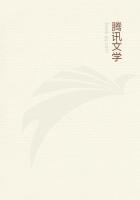Adverse criticism of an argument on its own merits, and of it when presented in the form of questions, are two different things. For often the failure to carry through the argument correctly in discussion is due to the person questioned, because he will not grant the steps of which a correct argument might have been made against his position: for it is not in the power of the one side only to effect properly a result that depends on both alike.
Accordingly it sometimes becomes necessary to attack the speaker and not his position, when the answerer lies in wait for the points that are contrary to the questioner and becomes abusive as well: when people lose their tempers in this way, their argument becomes a contest, not a discussion. Moreover, since arguments of this kind are held not for the sake of instruction but for purposes of practice and examination, clearly one has to reason not only to true conclusions, but also to false ones, and not always through true premisses, but sometimes through false as well. For often, when a true proposition is put forward, the dialectician is compelled to demolish it: and then false propositions have to be formulated.
Sometimes also when a false proposition is put forward, it has to be demolished by means of false propositions: for it is possible for a given man to believe what is not the fact more firmly than the truth. Accordingly, if the argument be made to depend on something that he holds, it will be easier to persuade or help him. He, however, who would rightly convert any one to a different opinion should do so in a dialectical and not in a contentious manner, just as a geometrician should reason geometrically, whether his conclusion be false or true: what kind of syllogisms are dialectical has already been said. The principle that a man who hinders the common business is a bad partner, clearly applies to an argument as well; for in arguments as well there is a common aim in view, except with mere contestants, for these cannot both reach the same goal; for more than one cannot possibly win. It makes no difference whether he effects this as answerer or as questioner: for both he who asks contentious questions is a bad dialectician, and also he who in answering fails to grant the obvious answer or to understand the point of the questioner's inquiry. What has been said, then, makes it clear that adverse criticism is not to be passed in a like strain upon the argument on its own merits, and upon the questioner: for it may very well be that the argument is bad, but that the questioner has argued with the answerer in the best possible way: for when men lose their tempers, it may perhaps be impossible to make one's inferences straight-forwardly as one would wish: we have to do as we can.
Inasmuch as it is indeterminate when people are claiming the admission of contrary things, and when they are claiming what originally they set out to prove-for often when they are talking by themselves they say contrary things, and admit afterwards what they have previously denied; for which reason they often assent, when questioned, to contrary things and to what originally had to be proved-the argument is sure to become vitiated. The responsibility, however, for this rests with the answerer, because while refusing to grant other points, he does grant points of that kind. It is, then, clear that adverse criticism is not to be passed in a like manner upon questioners and upon their arguments.
In itself an argument is liable to five kinds of adverse criticism:
(1) The first is when neither the proposed conclusion nor indeed any conclusion at all is drawn from the questions asked, and when most, if not all, of the premisses on which the conclusion rests are false or generally rejected, when, moreover, neither any withdrawals nor additions nor both together can bring the conclusions about.
(2) The second is, supposing the reasoning, though constructed from the premisses, and in the manner, described above, were to be irrelevant to the original position.















